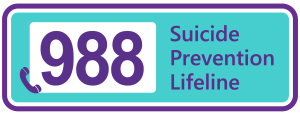Bullying Prevention: Let’s build a kinder world together
More than playground teasing, bullying can be severe and have lasting effects. The best solution? Understanding the impact of bullying and what we can do to prevent it.
School is a wonderful experience for many children. But for children experiencing bullying, it can become a source of stress. And with technology at their hands, bullying can go far beyond the classroom. According to a spring 2022 Pew Research Center survey, nearly half of U.S. teenagers (46%) report experiencing some sort of cyberbullying.
Why It’s Important to Prevent Bullying
Bullying can lead to a number of short- and long-term effects on a person’s mental and physical health, regardless of age. Children who are bullied are more likely to experience anxiety, depression, and low self-esteem. And the impact of bullying doesn’t end with its effect on mental health. The stress and trauma of being bullied can also lead to a number of physical health problems too—including headaches, stomach pain, sleep disturbances, chronic pain, and more.
![]()
If you or your child are in a suicidal, mental health, and/or substance abuse crisis, dial 988 for 24/7 free and confidential support.

If your child is struggling, mental health support is available:
1) El Paso Center for Children’s Counseling & Life Skills | Call Us: 915.565.5021
2) Texas Youth Helpline
3) Crisis Text Line (U.S.)
![]()
How You Can Help Prevent Bullying
Educate your children about bullying.
Talk to your child about bullying and cyberbullying. When your child knows what to look for, it will become easier for them to identify when someone is being a bully. Also, by having open and frequent conversations about bullies, your child will feel more confident recognizing bullying and will feel more comfortable talking to you about it.
Be a good role model who raises good role models.
Big changes start with small steps. You can make a difference in the world by being a positive role model and showing your children how to be kind and respectful to others. Anytime your child mirrors the good examples you set for them, they become better role models for other children around them!
Address bullying as soon as you spot it.
While you can’t predict whether or not your child will be bullied, there are things you can do if it happens. Some examples include alerting the school, teaching your child how to respond to bullying (whether it’s directed at them or another student), and make sure to monitor and address any changes in your child’s behavior. It’s also important to recognize if your child becomes the bully so you can address and correct their behavior as soon as possible, while also addressing any underlying causes for their behavior.
Tips for Talking to Your Child About Bullying
Keep conversations open and frequent.
By having open and frequent conversations with your child, you can foster trust and encourage them to come to you whenever they need to talk.
Remain calm and actively listen.
Sometimes even just talking about their bully can make a difference. Stay cool and really listen to anything your child is ready to talk about.
Teach your child how to manage their emotions in a healthy way.
When you teach your child to regulate their emotions, you reduce their chance of becoming a bully while giving them the tools they need to deal with conflict if someone bullies them.
Encourage problem-solving with your child.
While it may be your instinct to fix things, it’s much more important you listen to your child and help them figure out the best plan for handling bullies together.
Know the bullying policy at school and for any extracurriculars.
Hopefully your child doesn’t encounter bullies. But, if they do, it’s important to know the bullying policies in place at your child’s school and in their extracurricular activities.
Keep digital safety in mind.
Children can’t just leave their bullies behind when they get home from school. With cell phones and social media readily available, many children are also faced with cyberbullying. You should familiarize yourself with the technology your child is using so that you can keep them safe online. This will help you figure out how to set age-appropriate boundaries and guidelines to help monitor your child. You should also have important and age-appropriate discussions with your child about digital safety, risks they may face online, cyberbullying, and the ways the real world and the digital world are connected.
With a new year just around the corner, let’s commit to building a kinder and more compassionate world together in 2025.
For more tips and resources for parents, visit the El Paso Center for Children blog.
Resources & References
- GetParentingTips.com Staff. (n.d.). How to Stop Bullying and Cyberbullying. GetParentingTips.com. https://www.getparentingtips.com/tweens-and-teens/relationships/how-to-stop-bullying-and-cyberbullying/default.asp
- StopBullying.gov Ed Board. (2019, October 25). Effects of Bullying on Mental Health. StopBullying.gov. https://www.stopbullying.gov/blog/2019/10/25/effects-bullying-mental-health
- StopBullying.Gov. (2017, August). Fact Sheet: The Consequences of Bullying. StopBullying.Gov. https://www.stopbullying.gov/sites/default/files/2017-10/consequences-of-bullying-fact-sheet.pdf
- Texas Health and Human Services Commission. Family Support Services: Bullying Prevention. Texas Health and Human Services. https://fss.hhs.texas.gov/Grantees/social_media_toolkits/bullying.asp
- U.S. Department of Health and Human Services. (n.d.). How does bullying affect health and well-being?. Eunice Kennedy Shriver National Institute of Child Health and Human Development. https://www.nichd.nih.gov/health/topics/bullying/conditioninfo/health
- UNICEF. (n.d.-a). Bullying: What is it and how to stop it. UNICEF Parenting. https://www.unicef.org/parenting/child-care/bullying
- UNICEF. (n.d.-b). How to keep your child safe online. UNICEF Parenting. https://www.unicef.org/parenting/child-care/keep-your-child-safe-online
- Vogels, E. A. (2022, December 15). Teens and Cyberbullying 2022. Pew Research Center. https://www.pewresearch.org/internet/2022/12/15/teens-and-cyberbullying-2022/#fn-92711-1





